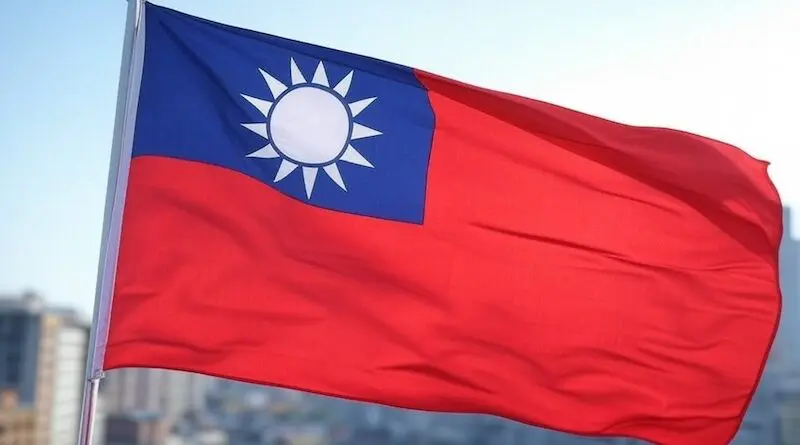Hegseth Memo Reveals US Military Strategy On Defending Taiwan – OpEd
The United States could increase its military presence with uncrewed ships, and submarines, while boosting defense in the Indo-Pacific, according to a U.S. Secretary of DefensePete Hegseth memo reports media.
According to the Taipei Times newspaper, the U.S. is reorienting its military strategy to focus primarily on deterring a potential Chinese invasion of Taiwan, a memo signed by U.S. Secretary of Defense Pete Hegseth showed. The memo also called on Taiwan to increase its defense spending.
The document, known as the “Interim National Defense Strategic Guidance,” was distributed this month and detailed the national defense plans of U.S. President Donald Trump’s administration, an article in the Washington Post newspaper said.
It outlines how the U.S. can prepare for a potential war with China and defend itself from threats in the “near abroad,” including Greenland and the Panama Canal, the article said.
The document said the U.S. would adopt a “denial defense” strategy to protect Taiwan in case of a Chinese invasion.
That strategy involves increasing the U.S.’ military presence through bombers, uncrewed ships, submarines and specialty units, and strengthening the defense of U.S. military bases in the Indo-Pacific region, it said.
The administration of former U.S. president Joe Biden and that of Trump’s first term “characterized China as the greatest threat to the U.S., and postured the force to prepare for and deter conflict in the Pacific region,” the article said.
The memo also said that a potential Chinese invasion of Taiwan must be prioritized over other dangers, requiring U.S. military deployments to be reassessed with a greater focus on the Indo-Pacific region.
The U.S. would pressure allies in Europe, the Middle East and East Asia to take on the bulk of the role in deterring Russia, North Korea and Iran, the memo said.
“China is the [U.S.] Department [of Defense]’s sole pacing threat, and denial of a Chinese fait accompli seizure of Taiwan — while simultaneously defending the U.S. homeland is the department’s sole pacing scenario,” Hegseth said in the memo.
The memo also called for “pressuring” Taiwan to significantly increase its defense spending.
The document is strikingly similar to a longer report published last year by the Heritage Foundation, titled “Project 2025,” the article said.
Although Trump denied that the plan was a blueprint for his second term during the election campaign, the document shows that the foundation’s plans have been deeply influential to his policies, it said.
Asked for comment, Democratic Progressive Party Legislator Chen Kuan-ting in Taipei recently said the memo showed that the U.S. is adjusting its military strategies to focus on Taiwan and the Indo-Pacific region.
Taiwan should respond to the U.S.’ strategic adjustments by investing more resources to bolster its capacity for self-defense, Chen said, adding that the nation should recognize the U.S.’ strong commitment to the region and strengthen regional cooperation.
Institute for National Defense and Security Research research fellow Su Tzu-yun said that Hegseth’s memo, which prioritizes “deterring China’s actions to seize Taiwan,” stems from a shift in U.S. overall strategy.
The shift introduced a “reverse Nixon” strategy, emphasizing Asia over Europe to concentrate efforts on countering China, Su said.
It also addresses China’s shift from a land-based military power to a marine power, which poses a threat to major marine trade routes, he said.
Although the expression is different in the way Hegseth’s discourse is rendered, it is similar to the U.S.’ past promises that reiterated its commitment to Taiwan, he said.
Taiwan President Lai Ching-te said on March 27 that Taiwan is committed to enhancing its self-defense capabilities and forging robust civic defense resilience to cope with the ongoing challenges of large-scale disasters and authoritarian expansion, the Taiwan Today newspaper reported.
Lai made the remarks at the third meeting of the Whole-of-Society Defense Resilience Committee in Tainan City, southern Taiwan.
The president first praised a drill held by the Ministry of the Interior and Tainan City Government earlier in the day, which included tsunami evacuation warnings and exercises to handle unidentified explosions in critical infrastructure, hospital system cyberattacks and social security riots resulting from cognitive warfare.
The drill will enable the government to evaluate progress on civilian dispatch and response, resource integration of neighboring cities and counties, and disaster prevention collaboration, he said.
It also provided an opportunity for central and local authorities to adjust their strategies ahead of the 2025 Urban Resilience Exercises to be held by the Ministry of National Defense’s All-Out Defense Mobilization Agency starting April 10 around the country, he added.
According to Lai, strengthening whole-of-society resilience is a core policy of countries worldwide and is key to ensuring social stability and continued national development. He also cited an international workshop held under the Global Cooperation and Training Framework earlier this month in Taipei City as evidence of the country’s related exchanges with its allies and like-minded partners.
Taiwan is committed to sharing its experience while working with democracies from around the world to consolidate global democratic resilience and maintain regional peace and stability.

